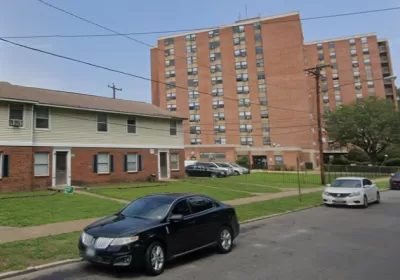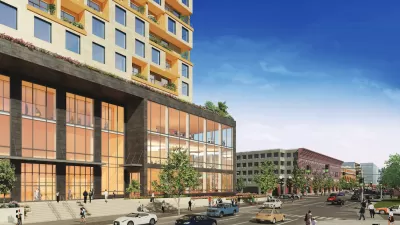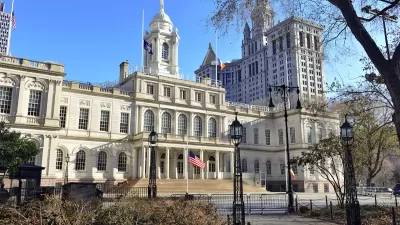The city hopes to see a mixed-use,mixed-income project replace the aging, “physically obsolete” Gilpin Court complex.

The City of Richmond hopes to attract redevelopment to the state’s largest public housing project, a 38-acre complex of 98 buildings that have fallen into disrepair, with 98 percent of units deemed “physically obsolete.” The Richmond Redevelopment and Housing Authority (RRHA) has re-issued a request for qualifications (RFQ) to redevelop Gilpin Court, whose maintenance backlog “is millions more than the City of Richmond could ever reconcile.”
Wyatt Gordon describes the effort in Next City. “For the neighborhood that comes after Gilpin, [RRHA CEO Steven Nesmith] envisions women- and minority-owned businesses, a resident reinvestment fund, grocery stores, a community health clinic, a job training center, and a mixture of multi-family rental units and single-family homeownership options for current public housing residents.”
According to Paul Williams, executive director of the Center for Public Enterprise, turning to private developers is the only viable option for many housing authorities. “Until Congress appropriates the funds that public housing requires and needs, conversions are the only viable tool in housing authority directors’ pocket to give residents the quality housing they deserve.”
Gordon writes that “If Gilpin’s residents are as well taken care of as those who moved out of the now demolished Creighton Court and into the mixed-income Armstrong Renaissance community next door, then LaFonda Page — a former public housing resident and current organizer for the Legal Aid Justice Center — believes the redevelopment will be welcomed by residents with open arms.”
FULL STORY: Can Redevelopment Save Richmond’s Dilapidated Public Housing?

Alabama: Trump Terminates Settlements for Black Communities Harmed By Raw Sewage
Trump deemed the landmark civil rights agreement “illegal DEI and environmental justice policy.”

Study: Maui’s Plan to Convert Vacation Rentals to Long-Term Housing Could Cause Nearly $1 Billion Economic Loss
The plan would reduce visitor accommodation by 25% resulting in 1,900 jobs lost.

Planetizen Federal Action Tracker
A weekly monitor of how Trump’s orders and actions are impacting planners and planning in America.

Waymo Gets Permission to Map SF’s Market Street
If allowed to operate on the traffic-restricted street, Waymo’s autonomous taxis would have a leg up over ride-hailing competitors — and counter the city’s efforts to grow bike and pedestrian on the thoroughfare.

Parklet Symposium Highlights the Success of Shared Spaces
Parklets got a boost during the Covid-19 pandemic, when the concept was translated to outdoor dining programs that offered restaurants a lifeline during the shutdown.

Federal Homelessness Agency Places Entire Staff on Leave
The U.S. Interagency Council on Homelessness is the only federal agency dedicated to preventing and ending homelessness.
Urban Design for Planners 1: Software Tools
This six-course series explores essential urban design concepts using open source software and equips planners with the tools they need to participate fully in the urban design process.
Planning for Universal Design
Learn the tools for implementing Universal Design in planning regulations.
Caltrans
Smith Gee Studio
Institute for Housing and Urban Development Studies (IHS)
City of Grandview
Harvard GSD Executive Education
Toledo-Lucas County Plan Commissions
Salt Lake City
NYU Wagner Graduate School of Public Service





























